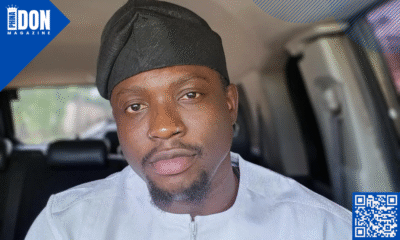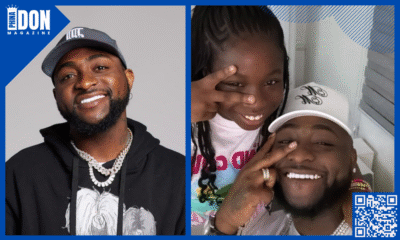Entertainment
The Complexity of Wealth: Davido’s Revelations on Feeling Broke.
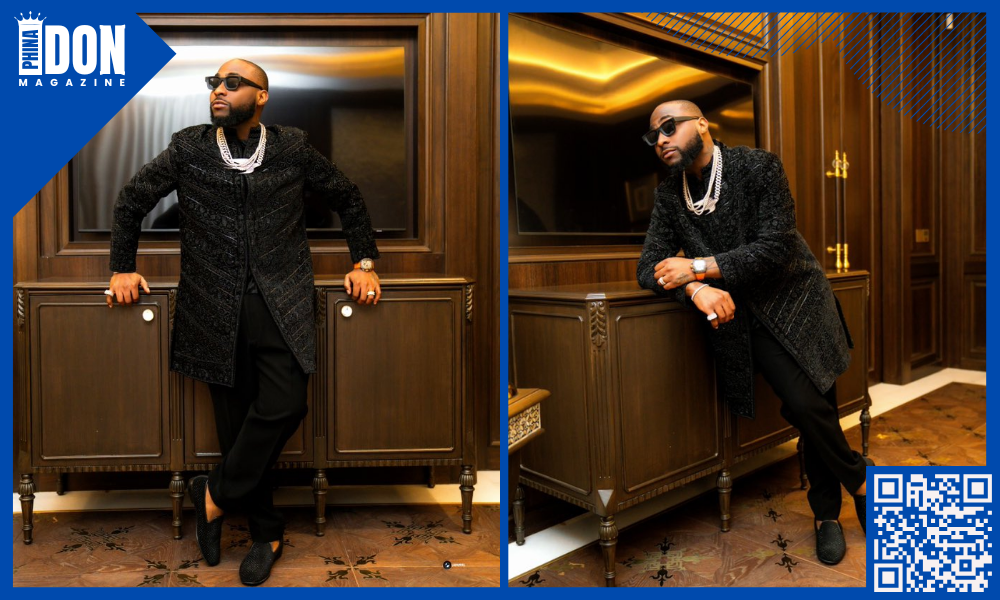
In a recent interview during Paris Fashion Week 2025, acclaimed Nigerian musician David Adeleke, popularly known as Davido, made a striking revelation regarding his perspective on wealth. He candidly remarked that his father’s immense fortune has at times made him feel financially inadequate. This statement, shared during his appearance at Amiri’s Fall/Winter show alongside fellow artist Omah Lay, has sparked considerable discussion across social media.
When queried about whether he has ever encountered someone who made him feel broke, Davido responded succinctly, “Yeah, my dad.” This admission underscores the complex relationship individuals often have with wealth, even when they themselves belong to the upper echelons of financial success. Just months prior, Davido expressed that it took him years to fully comprehend the extent of his father’s riches, suggesting a nuanced understanding of affluence within his familial context.
As one of Nigeria’s wealthiest musicians, Davido’s reflections prompt a broader dialogue on the nature of wealth and its psychological implications. They challenge the conventional notions of financial success and highlight that feelings of inadequacy can arise regardless of one’s economic status. This narrative reminds us that the world of wealth is not merely a binary of rich and poor; rather, it is a spectrum shaped by personal experiences and familial dynamics.
Davido’s experience serves as a poignant reminder that financial success does not solely equate to personal satisfaction or self-worth.
View Below:
View this post on Instagram
Entertainment
Nollywood Mourns the Loss of Kayode Peters.
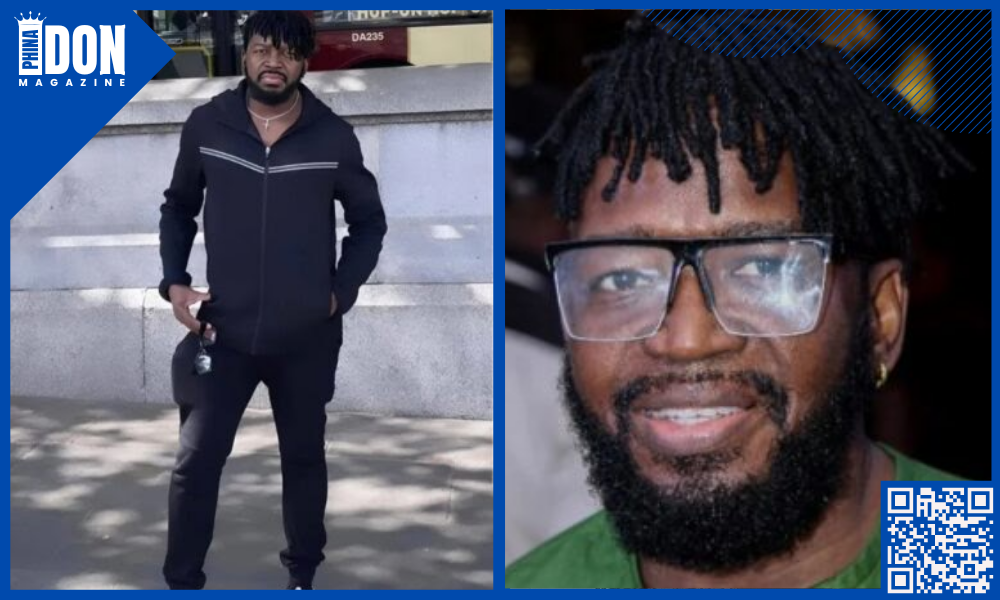
The Nigerian film industry is in mourning following the death of Kayode Peters, a renowned filmmaker and producer. The news was announced by his family on his official Instagram page, stating that he passed away peacefully on the morning of Saturday, June 28, 2025, in Toronto, Canada, after a long illness.
Peters, fondly known as KP, was celebrated for his contributions as a filmmaker, actor, and producer. He was known for his role as Koko in the popular sitcoms “Twilight Zone” and “Flatmates” in the early 2000s. His work also extended to stage plays and sitcoms like “Extended Family” and “Being Farouk,” significantly impacting Nigeria’s contemporary theatre and television landscape.
He is survived by his wife, Alexander, and their children. Funeral arrangements are underway, and further details will be shared by the family in due course. The industry and fans alike will deeply miss his warmth, generosity, and contributions to Nollywood.
Entertainment
Carter Efe Loses Social Media Accounts Following His Criticism of Wizkid.
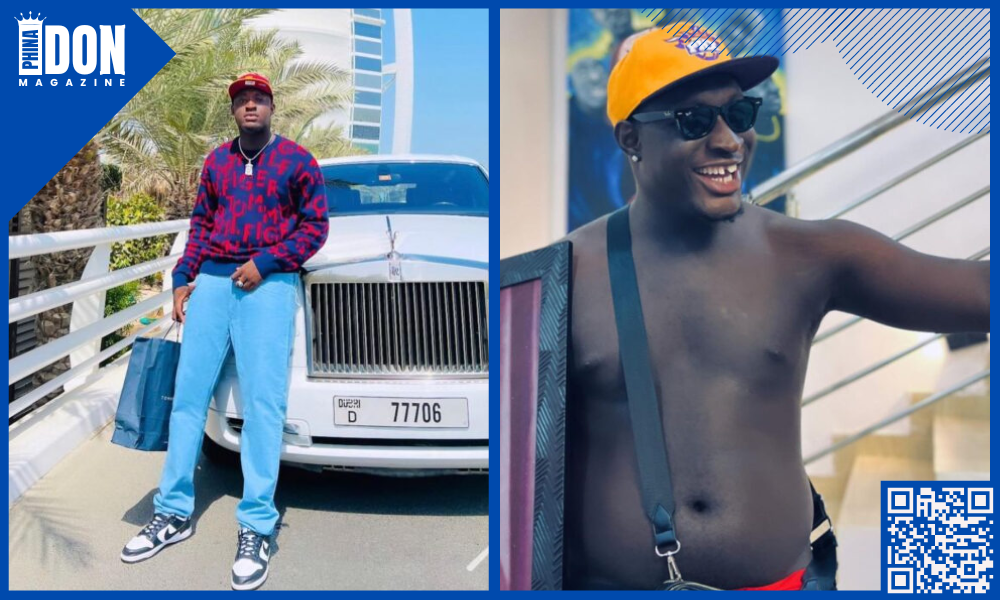
Popular Nigerian skit maker, Carter Efe, has reportedly lost access to his Instagram and TikTok accounts. This development follows recent criticism leveled against Afrobeat artist Wizkid during a TikTok live stream.
Efe’s comments, in which he accused Wizkid of pride, triggered a backlash from Wizkid’s fanbase, known as Wizkid FC. Subsequently, Efe claimed on X (formerly Twitter) that his Instagram account, boasting 1.8 million followers, was taken down by Wizkid FC. He later released an apology video stating that his TikTok account had also been blocked.
Efe has appealed to Wizkid and Wizkid FC for forgiveness and the restoration of his accounts.
Entertainment
Terry G Claims Indelible Impact on Nigerian Music.

Gabriel Oche Amanyi, known as Terry G, has asserted his significant contribution to the Nigerian music landscape. The “Akpoko Master,” pioneer of the “Street-hop” movement in the 2010s, stated that his influence is undeniable when discussing cultural impact within the Nigerian music industry.
His comments, made via social media on Wednesday, arrive amidst ongoing discussions regarding impact and legacies, spurred by the recent exchange between Odumodublvck and Blaqbonez.
In his statement on X, Terry G declared, “You can’t talk about cultural impact in Nigeria without talking about Terry G. I am the culture!” This pronouncement underscores his belief in his lasting effect on the evolution of Nigerian music.

